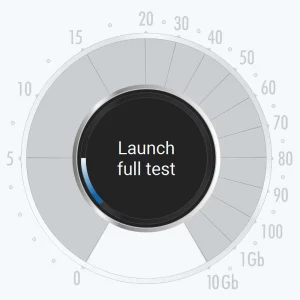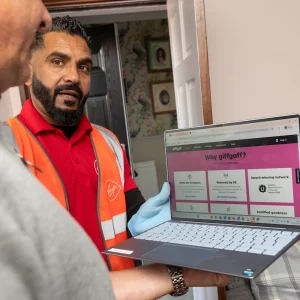Sponsored Links
UPD INCA Criticises UK Governments Redefinition of Superfast Broadband to 15Mb
Posted: 01st Jul, 2011 By: MarkJ
 The Independent Networks Cooperative Association (INCA / CBN), which aims to promote and support the development of next generation local (rural) internet access projects, has heavily criticised the UK governments new tender for a national broadband framework after it appeared to shun smaller ISPs and redefine "super-fast" broadband as anything from 15Mbps to 50mbps+.
The Independent Networks Cooperative Association (INCA / CBN), which aims to promote and support the development of next generation local (rural) internet access projects, has heavily criticised the UK governments new tender for a national broadband framework after it appeared to shun smaller ISPs and redefine "super-fast" broadband as anything from 15Mbps to 50mbps+.The tender, which first surfaced on Wednesday 29th June 2011 (full details), is designed to help the Broadband Delivery UK (BDUK) office achieve its targets. At present this includes making sure that 90% of "people in each local authority area" have access a superfast broadband (25Mbps+) service by 2015 (the last 10% will have to make do with a minimum download speed of 2Mbps).
INCA Statement
The BDUK Framework PQQ for next generation broadband is an odd document. On the one hand it says BDUK wants to encourage small and medium sized enterprises to join in, on the other financial and other criteria clearly exclude all but a handful of large players. There are provisions for smaller companies to join consortia, but only if a consortium can be set up and ready to go in a month - and that month is July.
The document also appears to redefine ‘superfast’ broadband as anything from 15Mbps to 50mbps+. The European targets for 2020 are for 50% of the population to enjoy 100Mbps and 50% to have 30mbps or over. So we could find up to £830m of public funding spent on networks that deliver half the minimum speeds of our European competitors. Previously government officials have said that superfast means anything over 24Mbps – meaning there must be at least some fibre, or high speed wireless, in the access network. BDUK seems to be stepping back from that ambition.
Entirely missing is any notion that local communities (or indeed non-telco, private sector funders) have a role to play outside of the local authority bureaucracy. The funding available is expected to be £10m per ‘call off contract’ (typically a county), yet the costs of any truly future-proofed next generation network are far in excess of that. We should be actively encouraging innovative forms of finance to come into the picture.
The BDUK Framework PQQ for next generation broadband is an odd document. On the one hand it says BDUK wants to encourage small and medium sized enterprises to join in, on the other financial and other criteria clearly exclude all but a handful of large players. There are provisions for smaller companies to join consortia, but only if a consortium can be set up and ready to go in a month - and that month is July.
The document also appears to redefine ‘superfast’ broadband as anything from 15Mbps to 50mbps+. The European targets for 2020 are for 50% of the population to enjoy 100Mbps and 50% to have 30mbps or over. So we could find up to £830m of public funding spent on networks that deliver half the minimum speeds of our European competitors. Previously government officials have said that superfast means anything over 24Mbps – meaning there must be at least some fibre, or high speed wireless, in the access network. BDUK seems to be stepping back from that ambition.
Entirely missing is any notion that local communities (or indeed non-telco, private sector funders) have a role to play outside of the local authority bureaucracy. The funding available is expected to be £10m per ‘call off contract’ (typically a county), yet the costs of any truly future-proofed next generation network are far in excess of that. We should be actively encouraging innovative forms of finance to come into the picture.
The government has been quick to point out that BDUK's tender is just a "draft" and that its reference to sub-25Mbps speeds are only a "guideline". Crucially the government claims that its original 25Mbps+ goal will not be affected.
Sadly this does not address the problem of smaller players (ISPs), which look increasingly likely to be excluded. The Director of Fibrestream UK, Guy Jarvis, told ISPreview.co.uk today, "My view throughout has been and remains that BDUK's very existence threatens innovation and delay unless expertly delivered and that clearly hasn't shown any progress in over a year already."
The situation is especially tedious because many of the smallest operators are also those with the most experience in bringing true fibre optic broadband services to remote locations, often via only the smallest amounts of money. They can often go where the big boys cannot.
UPDATE 2nd July 2011
ComputerWeekly reports that the tender will only accept ISPs which, "confirm that their annual turnover or revenue exceeds the threshold of £20m average annual turnover or revenue over the two most recent financial years ... inability to confirm this level of revenue will result in the PQQ being disqualified."
That would obviously exclude not just small but also some medium sized providers; ISP profit margins are notoriously low. As with the 15Mbps situation above, the government claims that its £20m threshold has not yet been fixed and is merely desired to ensure that an ISP has the capacity to meet the scale of related projects.
In fairness we can understand the government's position, although it may not be entirely consistent with their claim to be focusing on local communities as such efforts might require niche operators to resolve.
Search ISP News
Search ISP Listings
Search ISP Reviews
Latest UK ISP News







Cheap BIG ISPs for 100Mbps+
150,000+ Customers | View More ISPs
Cheapest ISPs for 100Mbps+
Modest Availability | View More ISPs
Latest UK ISP News
Helpful ISP Guides and Tips
Sponsored Links
The Top 15 Category Tags
- FTTP (6916)
- BT (3917)
- Politics (3119)
- Business (2821)
- Openreach (2703)
- Building Digital UK (2537)
- Mobile Broadband (2527)
- Statistics (2162)
- FTTC (2153)
- 4G (2132)
- Virgin Media (2065)
- Ofcom Regulation (1801)
- 5G (1782)
- Fibre Optic (1616)
- Wireless Internet (1615)
Sponsored
Copyright © 1999 to Present - ISPreview.co.uk - All Rights Reserved - Terms , Privacy and Cookie Policy , Links , Website Rules






























